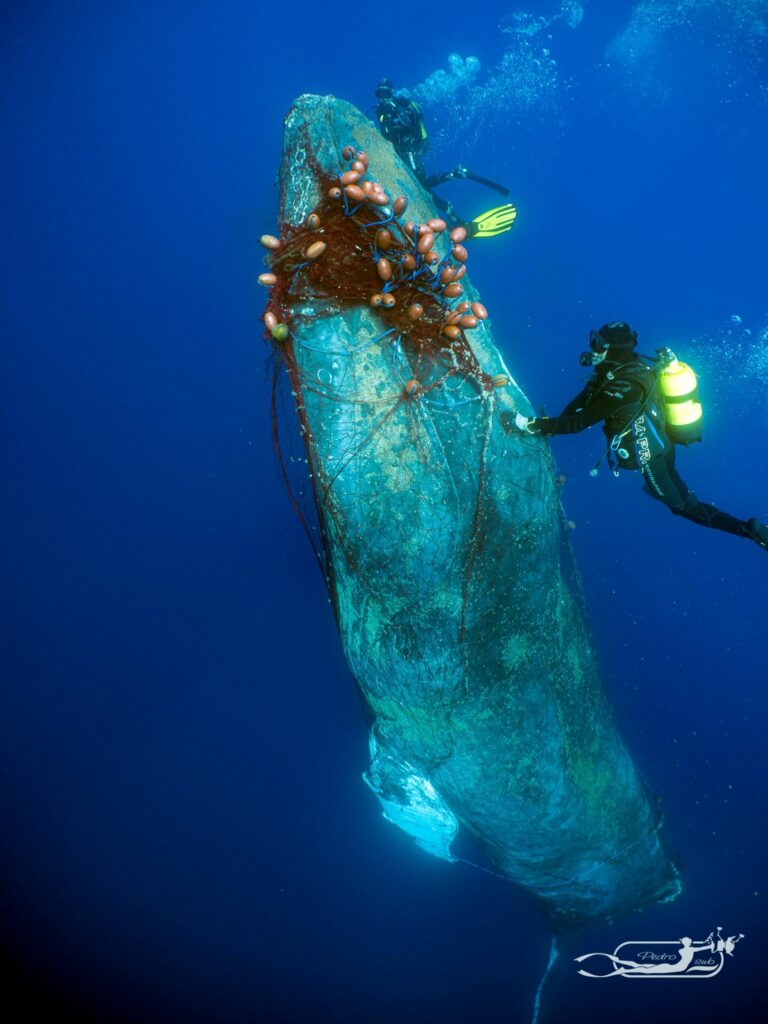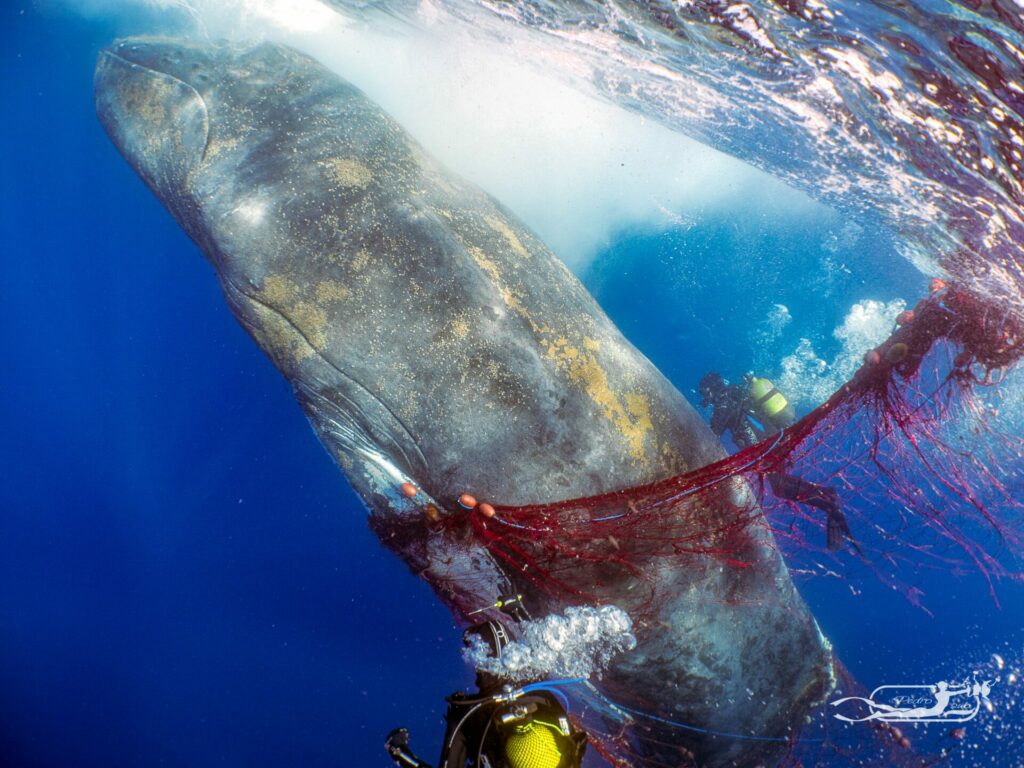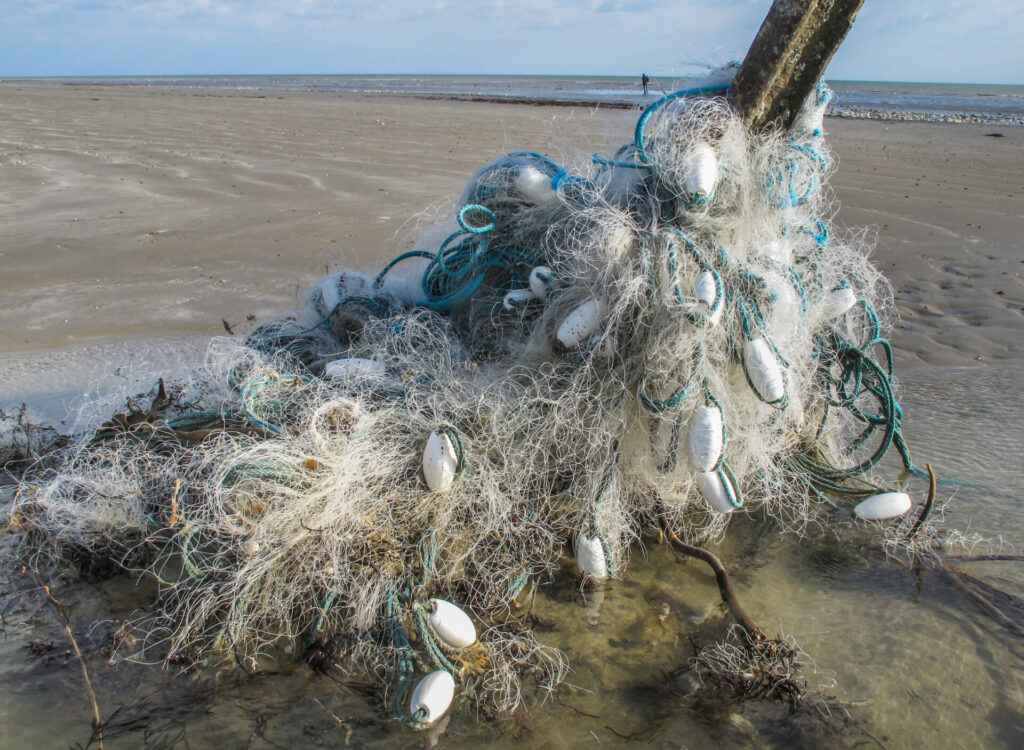A rare humpback whale that ‘thanked’ divers after they rescued it from an illegal fishing net off the coast of Mallorca, has died just days later.
The 46 foot female mammal was spotted in the Mediterranean on May 20, caught in an illegal drift net – designed to catch small fish but that also traps larger sea creatures – that left it unable to open its mouth.
The 30 tonne whale had originally been spotted by a ship three miles off the eastern coast of Mallorca in the Balearic islands. Sightings of the mammals are rare in the area and have been reported only twice before.
Initially the team from Palma de Mallorca’s Aquarium attempted to cut the humpback whale free from a boat but this proved impossible, so they contacted professional divers from the nearby Albatros and Skualo marine centres for assistance, who took around 45 minutes to successfully undertake the rescue.

The underwater dive team said the whale had appeared to give what they felt looked like ‘a little thank you sign’ and swam around the team for some time, then blowing water from her spout, before heading off.
But a week later on Thursday 27 May the same creature – identified by Spanish marine experts from pictures of the rescue – washed up on a beach close to Valencia, Spain, around 190 miles away.
She was in a poor condition with injuries, most seriously to her dorsal fin, possibly caused by a ship’s propeller.
Specialists from the Oceanography Foundation, who examined the whale on the sands near the town of Tavernes de la Valldigna, decided the whale would not survive a return to the sea, after an exhaustive inspection.
Jose Luis Crespo, head of conservation for the foundation said: ‘We would have caused more injuries and made its condition worse, and it would possibly have been back on the sand the next day.’
The whale then died while still on the beach.
Marine biologist Gigi Torras, who was a part of the original rescue group which went into action on her birthday, said: ‘It is horrible. This has been really depressing.’
To The Rescue
But just seven days earlier she had formed part of the elated dive team.
Gigi, who owns the Albatros diving centre, described the rescue saying: ‘The moment we got into the water it was like entering a completely different dimension. We were kind of nervous because we were next to the whale and you know that she’s been tangled for a while, and you know that she’s getting more exhausted

‘The first 10 seconds she got a bit nervous, you know, like bubbles everywhere. But then, call me crazy, I think she knew we were there to help her and she just relaxed and we started working from the front of her mouth backwards.
‘We started cutting and she gave a little wriggle to get out (of the net). She gave us a little thank you sign, very briefly as she got more strength and she just swam off. It was out of this world, incredible, incredible.’
Gigi added the gesture stood out as the ‘best ever’ birthday present for her.
Illegal Drift Nets
The unlawful nets present a huge threat to marine life
An estimated 300,000 whales, dolphins and porpoises a year die after being injured in nets or lines designed to target other species, according to the WWF.
The United Nations banned drift nets, nicknamed ‘Walls of Death’, 30 years ago for presenting a grave threat to aquatic life, but some fishing companies continue to use them in defiance of the ruling.

Practically invisible to sea life, drift nets float from a cork line and reach down to a depth of 50ft to catch fish – but they can also kill a range of marine life, including bigger underwater mammals like whales, seals and dolphins, as well as sea birds.
Now, Gigi said she hopes the incident will be a catalyst for raising awaress of the impact of the nets, which are most common in the Mediterranean.
‘These nets have been illegal for three decades.’ Gigi said. ‘They do not target anything but just capture everything. I hope this opens people’s eyes to the damage they are causing to the oceans.’
In 2020 Italian coastguards seized more than 100km of the nets and said their usage has surged in recent years.
‘The impact of these drift nets is absolutely disastrous,’ said Vanya Vulperhorst, campaign director of illegal, unreported and unregulated fishing at Oceana Europe, a conservation non-profit that has investigated illegal drift net fishing across the Mediterranean.
‘They are indiscriminate in what they trap, and the result is that endangered and protected species are being killed in large numbers.’









